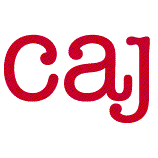Canadian Association of Journalists sends letter to Vista Radio encouraging company to come up with a policy that encourages editorial independence.
By Nick Taylor-Vaisey
Not long ago, the Canadian Association of Journalists learned that editorial staff at a radio station in British Columbia were offered a chance to participate in ad sales during a one-day blitz. We later confirmed more details, eventually reported by J-Source: Vista Radio provided staff, including those in editorial operations, a voluntary opportunity to earn commission on ads sold during that aforementioned blitz.
We understand that news organizations are facing challenges on the revenue side, and we know that confronting those challenges requires outside-the-box thinking. But we stand by the choice made by Sean Eckford, the former news director at two B.C. radio stations, to step down when he complained about the blitz and Vista didn't change its position.
Our own policy on editorial independence affirms the need for total separation between editorial and ad sales operations. Any benefit to journalists selling ads is outweighed by the loss of credibility among readers and viewers, many of whom could lose trust in a journalist's ability to fairly report the news without being compromised by their employer's corporate interests.
The CAJ expressed those concerns in a letter to Vista Radio, and we encourage the company to develop an internal policy that clearly stands up for the editorial independence of its journalists. We're happy to work with it to that end.
Dear Mr. Poulton,
I write to you today in my capacity as the president of the Canadian Association of Journalists. Our National Board was recently made aware of a concerning situation at Vista Radio properties that appears to threaten the editorial independence of journalists who work in your newsrooms.
A Vista Radio employee recently confirmed to the CAJ that the company made an offer to editorial staff to participate voluntarily in commissioned advertising sales during a chain-wide, one-day sales blitz. While we understand the challenges media owners face, and particularly the ongoing struggle even to maintain advertising revenue, we must oppose any effort to involve editorial staff in advertising.
The CAJ adopted a policy paper in 2007 that explains our position. We hold that separation of editorial and advertising operations are “critical to the long-term financial viability of a newspaper or broadcast outlet. If readers and viewers lose faith in a news outlet’s autonomy, they will abandon it.”
The policy paper on editorial independence offers a section on advertising guidelines that reinforce this principle:
“Complete operational separation should be maintained between editorial staff and advertising staff. Advertising staff should never attempt to influence new coverage in any way, whether it relates to a current client or not.”
The CAJ would strongly encourage Vista Radio to establish internal policy consistent with our policy paper’s recommendation to that end:
“All news outlets should create internally a list of guidelines for editors and advertising sales reps that clarify the segregation of editorial and ad functions…”
We understand that no journalist has been forced into ad sales, but clear rules that prohibit any breaches of the firewall between editorial and advertising operations can only enhance the credibility of any news organization.
I’d be happy to discuss this further, at your convenience.
Yours sincerely,
Nick Taylor-Vaisey, CAJ President

